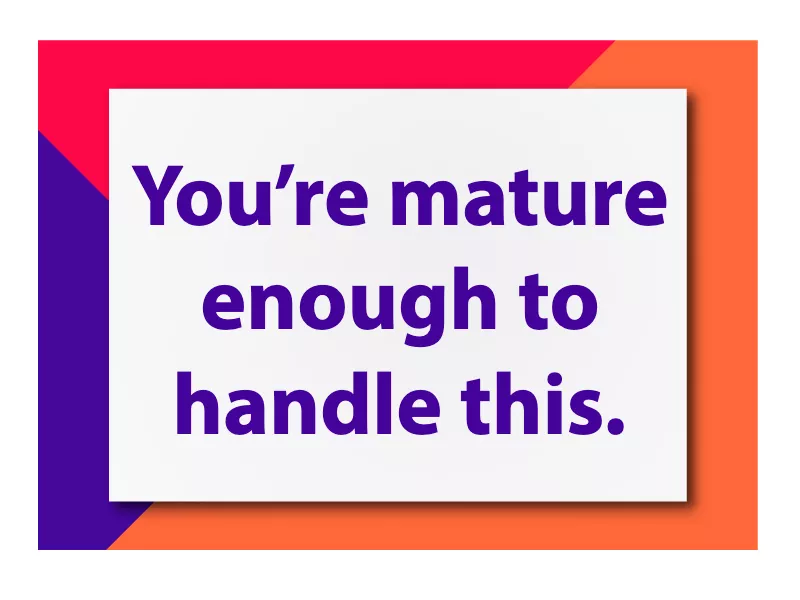Adult children aren’t immune from the emotional trauma of divorce — far, far from it. In many ways, dealing with a parent’s divorce as an adult can be just as messy, gut-wrenching and earth-shattering (and sometimes, even more so) as dealing with divorce as a child.
While adults are less likely to feel the crushing sense of guilt that so many younger children of divorce experience, they’re often acutely aware — too aware — of all the gory details of the split itself. Who hates whom. Who’s sleeping with other people. Who’s coping poorly, who didn’t want to stay married, who never wanted to get married in the first place. This isn’t exactly a fun or healthy place to be, to say the least.
Divorced parents of adult children also tend to lean on their kids for emotional support, which, while understandable (especially if parents are close with their children), creates a lot of undue stress and anxiety for everyone involved. This blurring of boundaries can lead to adult children taking sides in the divorce, which only further divides families.
Expectations Are High

Divorced parents of adults tend to lean on their children a lot. Getty Images
Late-in-life parental divorce is also much more apt to shake up children’s identities. Adult children of divorce (or ACODs) often look back on their lives and question every happy childhood memory they ever had, in addition to dissecting their own marriages and relationships with freshly critical eyes.
We know all of this, and yet, our culture still expects ACODs to be resilient and bounce back easily in the aftermath of divorce. Even though the majority of parental divorce research today focuses on children, the rising divorce rate among older Americans has forced researchers to begin examining ACODs more closely. This will hopefully lead to an increased cultural understanding of divorce and its effects on older children. In the meantime, if someone you know is an adult child of divorce, it’s helpful to learn what to say — and, more importantly, what NOT to say — to alleviate their suffering.
Here are 12 things you should never say to an adult child of divorce.
A Matter of Maturity

FamilyMinded
Sure, adult children are probably (hopefully) mature enough to come to terms with their parents’ split, especially if they’re able to seek help from a therapist or other licensed mental health professional. But does that mean they want to hear you tell them that they’re mature enough to handle things? Nope!
When you tell someone this, you’re essentially saying that, because they should be old enough to “handle it,” their pain doesn’t matter. But divorce is cataclysmically awful no matter how old you are, and sometimes, “handling it” looks like grieving: Crying, yelling, clamming up, feeling depressed and getting irritable should be expected and allowed. There’s no formula for how best to “handle” divorce anyway.
Be Grateful

FamilyMinded
While this statement may be true (and it’s undoubtedly coming from a good place), it’s not exactly helpful. Even ACODs that are in happy relationships or are happily solo, with distractions surrounding them in the form of kids, pets, travel or work, will be thrown off balance by their parents’ divorce.
And when someone is in the throes of a tragic event, like the breaking up of a family unit, it usually doesn’t cheer them up to be reminded of how good they have it otherwise. Rather, this may end up making them feel worse, since it implies that they should feel thankful for what they have, instead of making room for totally normal feelings of sadness and anger.